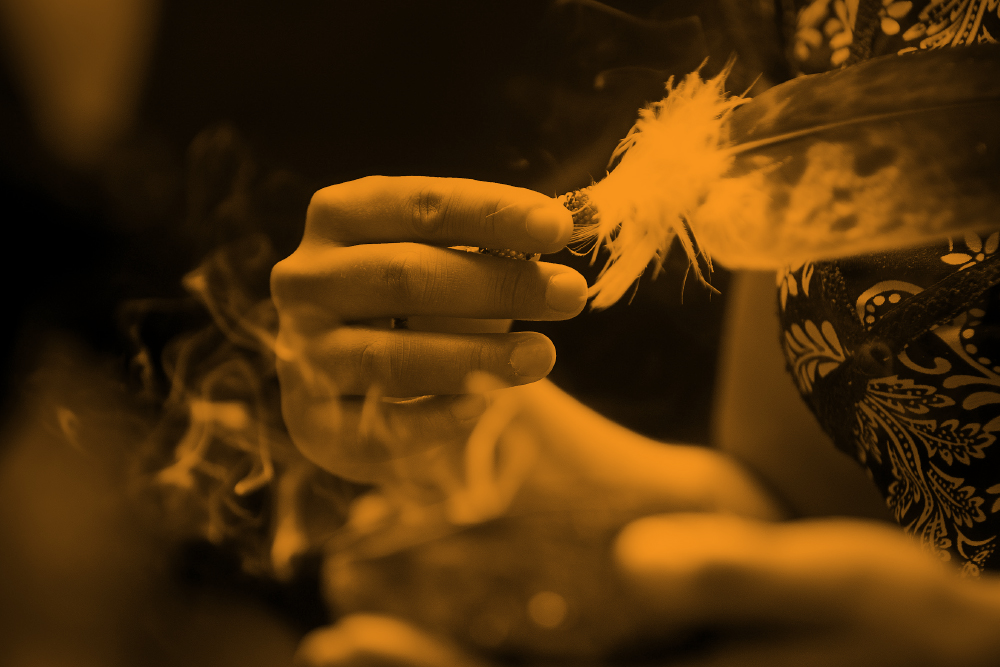Advancing Truth and Reconciliation
September 19, 2022
Share

Sept. 30 marks Canada’s second annual National Day for Truth and Reconciliation (NDTR). Throughout the month, the Queen’s community will honour the day with several commemorative events, learning opportunities, and cultural activities taking place across campus — culminating with a public Sacred Fire Ceremony on Sept. 30.
“On the National Day for Truth and Reconciliation, we encourage all campus community members to consider wearing an orange shirt in support of residential school survivors, and as a show of commitment to our ongoing efforts to advance reconciliation,” says Kanonhsyonne (Janice Hill), Associate Vice-Principal (Indigenous Initiatives and Reconciliation). “It is of utmost importance that we continue to listen to the voices and truths of survivors, their descendants, Indigenous families, and communities. We must seize opportunities to build good and right relationships, and seek to start and sustain conversations about how to move forward respectfully. In working together, we can take meaningful action towards making reconciliation a priority each day.”
The sacred fire, which will take place on Agnes Benedickson Field from 1-3 p.m., will include ceremonial elements, remarks from local Indigenous and university leaders, with the option to attend via livestream. This intimate gathering will reflect on the legacy of Indigenous residential schools in Canada and seek to re-affirm the university’s commitment to advancing reconciliation.
“This is an important day for our country and our institution to reflect on its past, and to take steps to realize a very different future,” says Patrick Deane, Principal and Vice-Chancellor. “Now is the time to redefine our relationships and build meaningful partnerships based on respect and understanding. There is still much to learn and much to be done but we are committed to doing the work to advance reconciliation at Queen’s.”
In addition to the sacred fire, several other activities are being held throughout the coming weeks, including Indigenous art and history exhibits, Indigenous craft workshops for students, and learning sessions for faculty members seeking to integrate actions that advance truth and reconciliation into their classroom curriculum. Members of the campus community can also sign a personal commitment to advance reconciliation.
The university is encouraging students, staff, and faculty to attend NDTR events. Afternoon classes on Sept. 30 have been cancelled.
In 2021, the federal government declared the statutory day on Sept. 30 as it was previously well-known as Orange Shirt Day. Similar to last year, the university will also be distributing another limited quantity of orange shirts for students to wear on the NDTR as a visual show of solidarity. Orange shirt pick-up locations will be announced on the Office of Indigenous Initiatives website. Those visiting pick-up locations will also have a chance to write a message of reflection on small paper orange shirts which will be submitted as part of a display being created by the Faculty of Health Sciences in the School of Medicine building lobby.
A display of Orange Shirts will also be displayed on lamp poles lining University Avenue, just as the red dresses were displayed for the National Day of Awareness for Missing and Murdered Indigenous Women, Girls, and Gender Diverse People on May 5, 2022.
To learn about all of the upcoming NDTR activities, events, and resources visit the Office of Indigenous Initiatives website.
Learning about or reflecting on residential schools and their impacts may trigger difficult emotions. Support services are available at Four Directions for Indigenous students, and the Office of Indigenous Initiatives (Elders) for Indigenous staff and faculty. Support services are also available at Student Wellness Services and through other counselling resources for students. The Employee and Family Assistance Program can offer services for staff and faculty.